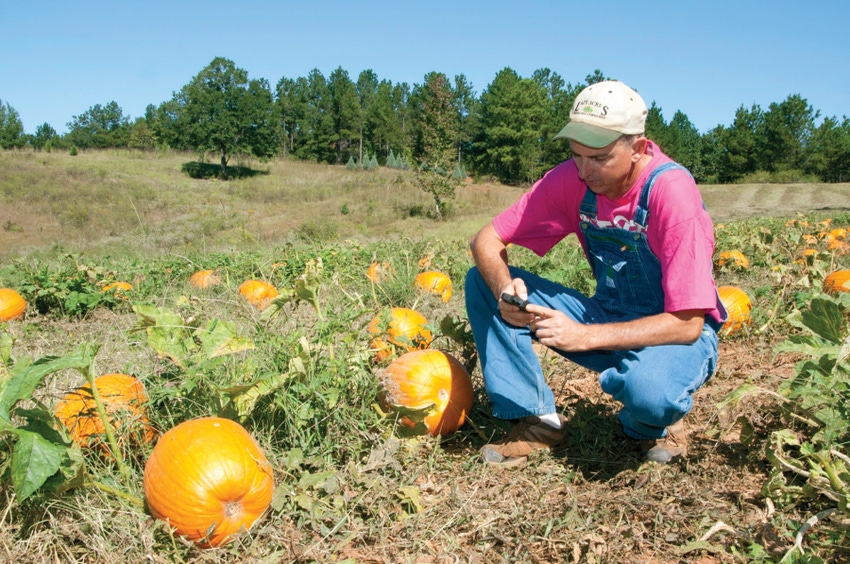
Social media gives agribusiness owners ways to connect with audiences eager for information about food and how it is grown.Starkville, Miss.-based Old Well Organics created a social media strategy to promote its unusual products.Many assume farming is an independent activity, but in the age of social media, many farmers realize that they can tell their story better by connecting with consumers.
October 28, 2011

Farmers and Facebook may not seem like natural allies, but savvy agribusiness owners are using social networks to generate business and educate consumers.
Amanda Clay Powers, Extension reference librarian and assistant professor at Mississippi State University’s Mitchell Memorial Library, is a nationally recognized expert in social media. Her Twitter guide for the MSU library’s collection, located at http://guides.library.msstate.edu/twitter, helps people get started in social media.
“People have moved their lives online,” she said. “They have different expectations about how they receive information, how they interact with information and how they engage with online communities. Individuals expect their voices to be considered an important part of the dialogue.”
As someone highly involved in social media on a professional and personal level, Powers has seen the evolution and adoption of emerging technologies in rural communities from Mississippi to India.
“People use their smart phones to get information delivered straight to them,” Powers said. “Areas without broadband are still connected to social networks, and like their urban peers, rural residents increasingly expect information and the people generating content to be available to them.”
Social media gives agribusiness owners ways to connect with audiences eager for information about food and how it is grown.
“Producers can interact one-on-one with their clients,” she said. “Eating is a personal experience, and people want to understand the process of getting food from the farm to the table.”
Powers described how Starkville, Miss.-based Old Well Organics created a social media strategy to promote its unusual products.
“They developed a Facebook page and shared recipes using their more unique vegetables,” she said. “Customers took pictures of the meals they created using Old Well Organics produce and tagged them in photos they posted to Facebook. Soon there was an online community of people who wanted their products and wanted to engage with like-minded people.”
Many assume farming is an independent activity, but in the age of social media, many farmers realize that they can tell their story better by connecting with consumers.
Michael May of Lazy Acres Plantation in Chunky, Miss., uses a website, Facebook and Twitter to promote his business, which includes a pumpkin patch, corn maze and Christmas tree farm.
“My wife and I attended several agritourism conventions, and we kept hearing about social media,” he said. “I started on Twitter and then moved to Facebook because I like the format better. My Facebook messages automatically feed to Twitter, so I reach clients through both social networks. The best thing about this form of advertising is that it only costs me a little of my time.”
In addition to informing fans about additions to the petting farm and building renovations, the Mays run contests, including a promotion designed to increase the number of fans on their Facebook page.
“When we first started on Facebook, we had 200 to 300 fans,” May said. “About a month before the season started, I ran a post that said if we hit 1,000 fans, I’d send a password to everyone to get free admission our first open weekend, which is typically our slowest time. We immediately hit 1,000 fans because people recommended that others join our page. That word-of-mouth advertising is priceless.”
With consumer interest in food production so high, May advised agriculture producers to get involved in social media to connect with other growers and share their story, or “agvocate” for agriculture.
“We’ve talked to growers from all over the South, and they’re hesitant to get into social media, but I tell them to jump in,” May said. “Now is the time to get started. You have to get in there and learn through the process. Technology moves on — you have to change and keep up with it.”
In conjunction with county Extension offices, the MSU Extension Service offers workshops in e-commerce and social media designed for agribusiness owners. To schedule a workshop, contact assistant Extension professor Mariah Smith at (662) 325-3226.
You May Also Like



